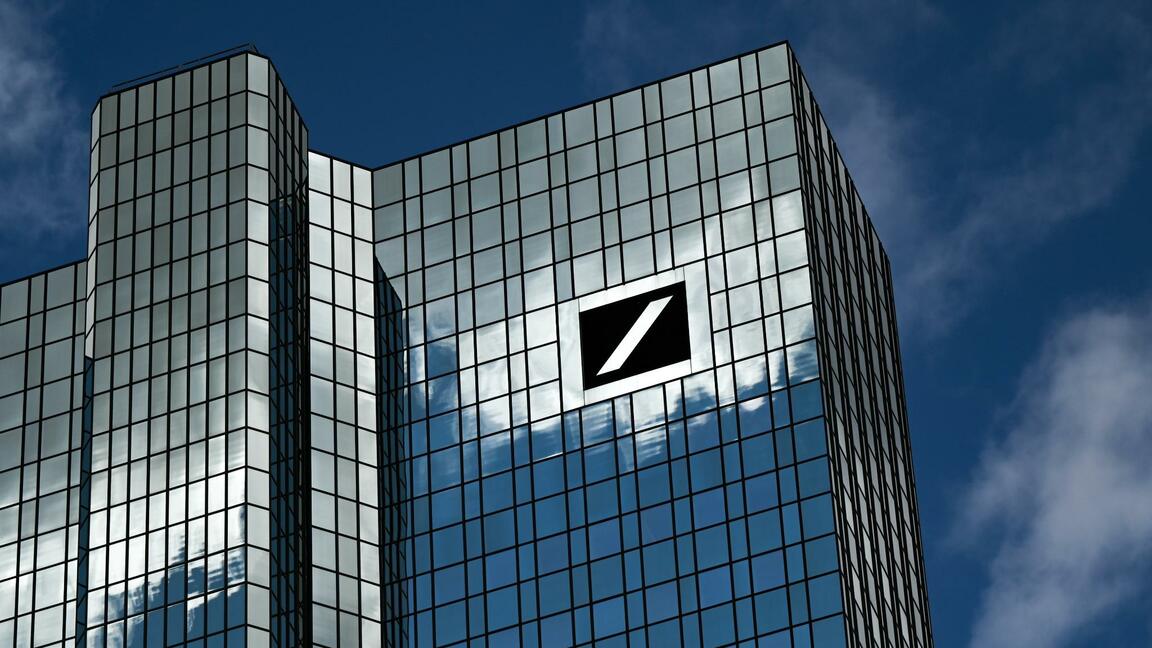
Deutsche Bank Reports Strong Q1 Results Amid Transformation, Cuts 800 Jobs to Boost Efficiency
Bank's Corporate and Retail Divisions Shine; Investment Bank Revenues Dip as Cost-cutting Measures Continue
Deutsche Bank has reported a significant rise in profits for Q1, despite the ongoing global turbulence in the financial industry. With a net revenue of €2 billion for the quarter, up 35% YoY, the German bank has managed to maintain stability and profitability. However, the bank plans to cut 800 jobs in a new cost-saving drive, focusing mainly on senior non-client facing roles.
The bank's Q1 revenues reached €7.7 billion, up from €7.33 billion in Q1 2022, despite challenging conditions in financial markets. The provision for credit losses was €372 million, compared to €292 million a year ago. CET 1 capital ratio, a measure of bank solvency, stood at 13.6%, up from 12.8% a year ago and 13.4% the previous quarter.
Deutsche Bank's impressive performance came amid market turmoil triggered by the collapse of U.S.-based Silicon Valley Bank in early March, which resulted in the emergency rescue of Credit Suisse by UBS. Despite its strong financial position, Deutsche Bank's Frankfurt-listed stock plummeted, and credit default swaps soared. In response, German Chancellor Olaf Scholz publicly dispelled market concerns.
Deutsche Bank CFO James von Moltke told CNBC that the March banking turmoil allowed the bank to prove its resilience to a skeptical market. He suggested that the market, in scrutinizing Deutsche Bank, saw a strong and profitable business model, stable balance sheet and deposit base, a well-underwritten commercial real estate book, and no near-term financing needs.
Von Moltke also mentioned that Deutsche Bank would be a "natural beneficiary" of the fallout from Credit Suisse's demise, as clients may seek to diversify their banking relationships. Deutsche Bank's latest effort to trim its workforce reverses a staff buildup in recent quarters, with the goal of cutting costs by an additional €500 million over the next few years.
Deutsche Bank's investment banking revenue dropped 19% during the quarter, while revenues at the corporate bank and retail divisions exceeded expectations. The bank's shares were up 1.7% by mid-morning, following a 15% drop in late March due to fears of contagion from the banking troubles.
Although Deutsche Bank ranks as one of the world's most systematically important banks, analysts have identified its vulnerability to a slowing economy, high inflation, and regulatory issues that have plagued the institution over the years. The bank has recently announced a major revamp of its management board, aiming to achieve "sustainable profitability."
Revenue at the investment bank fell 19% to €2.7 billion in Q1 from a year earlier, below expectations of €2.8 billion. This decrease was countered by gains at the corporate bank and retail bank, which produced revenue increases of 35% and 10%. Deutsche Bank plans to save an additional €500 million annually by 2025 by cutting about 800 senior back-office staff. The bank will also record about €500 million in related charges this year, for expenses such as severance.
Deutsche Bank's shares rose 2.3% in Frankfurt trading. The bank aims to beat a target for annual revenue growth of around 4% through 2025 by selectively hiring in the corporate bank, investment bank, and wealth management sectors. CFO James von Moltke said Deutsche Bank is well-positioned to capitalize on opportunities arising from the merger of Credit Suisse and UBS.
The trading performance in Q1 puts Deutsche Bank in line with Goldman Sachs Group Inc., which reported the worst fixed-income result among the big Wall Street firms. Deutsche Bank itself was the target of speculators in late March, during a selloff that saw its stock drop as much as 15%.
Despite the challenges faced during the quarter, Deutsche Bank's asset management and private banking divisions both performed well. The asset management division reported a 3% increase in revenue, while the private banking division saw a 6% rise in revenue. These strong performances were partly due to the bank's focus on growing its wealth management business, which has seen significant inflows of assets in recent quarters.
Deutsche Bank CEO Christian Sewing expressed confidence in the bank's transformation strategy and highlighted the fact that the first quarter results show that the bank is on the right track. He also acknowledged the ongoing market uncertainty, stating that the bank is closely monitoring the situation and making adjustments as necessary. Sewing added that Deutsche Bank's primary focus remains on delivering value to its clients and shareholders while continuing to invest in its digital and technological capabilities.
The bank is also working to improve its environmental, social, and governance (ESG) performance. Deutsche Bank recently announced its commitment to achieving net-zero greenhouse gas emissions by 2050, in line with the goals of the Paris Agreement. The bank is developing a comprehensive sustainability strategy, including efforts to promote green financing and investment opportunities for clients. Additionally, Deutsche Bank is ramping up its efforts to combat money laundering and financial crime, following a series of high-profile scandals that damaged its reputation in recent years.
Deutsche Bank's improved financial performance and ongoing cost-cutting measures have helped to restore investor confidence, despite the turbulent market environment. However, the bank still faces significant challenges, including the need to adapt to a rapidly changing financial landscape, maintaining its competitiveness against larger and more diversified rivals, and continuing to enhance its ESG credentials.
In conclusion, Deutsche Bank's first-quarter results demonstrate that the bank's transformation program is yielding positive results, with a significant increase in net revenue and a strong CET 1 capital ratio. The bank's decision to cut 800 jobs and implement additional efficiency measures is aimed at further reducing costs and enhancing its competitive position. Despite the weaker-than-expected performance of its investment bank division and ongoing market uncertainty, Deutsche Bank's other business divisions have shown resilience and growth, contributing to the overall positive results. The bank's focus on digital transformation, sustainability, and risk management, along with its ability to capitalize on opportunities arising from the recent banking turmoil, suggest that Deutsche Bank is well-positioned for future growth and success.
Read More
-
SCHD ETF Holds Ground With 3.6% Yield as Dividend Investors Eye Stability Over Growth
15.10.2025 · TradingNEWS ArchiveStocks
-
Ripple XRP (XRP-USD) Steadies at $2.43- SEC Shutdown Freezes ETF Decisions, Inflows Hit $61.6M
15.10.2025 · TradingNEWS ArchiveCrypto
-
NG=F Falls to $2.99 as Record Supply Outpaces Demand Despite 16.9 Bcf/d LNG Exports
15.10.2025 · TradingNEWS ArchiveCommodities
-
USD/JPY Price Forecast - Yen Weakens to 151.30 Amid Dollar Selloff
15.10.2025 · TradingNEWS ArchiveForex


















